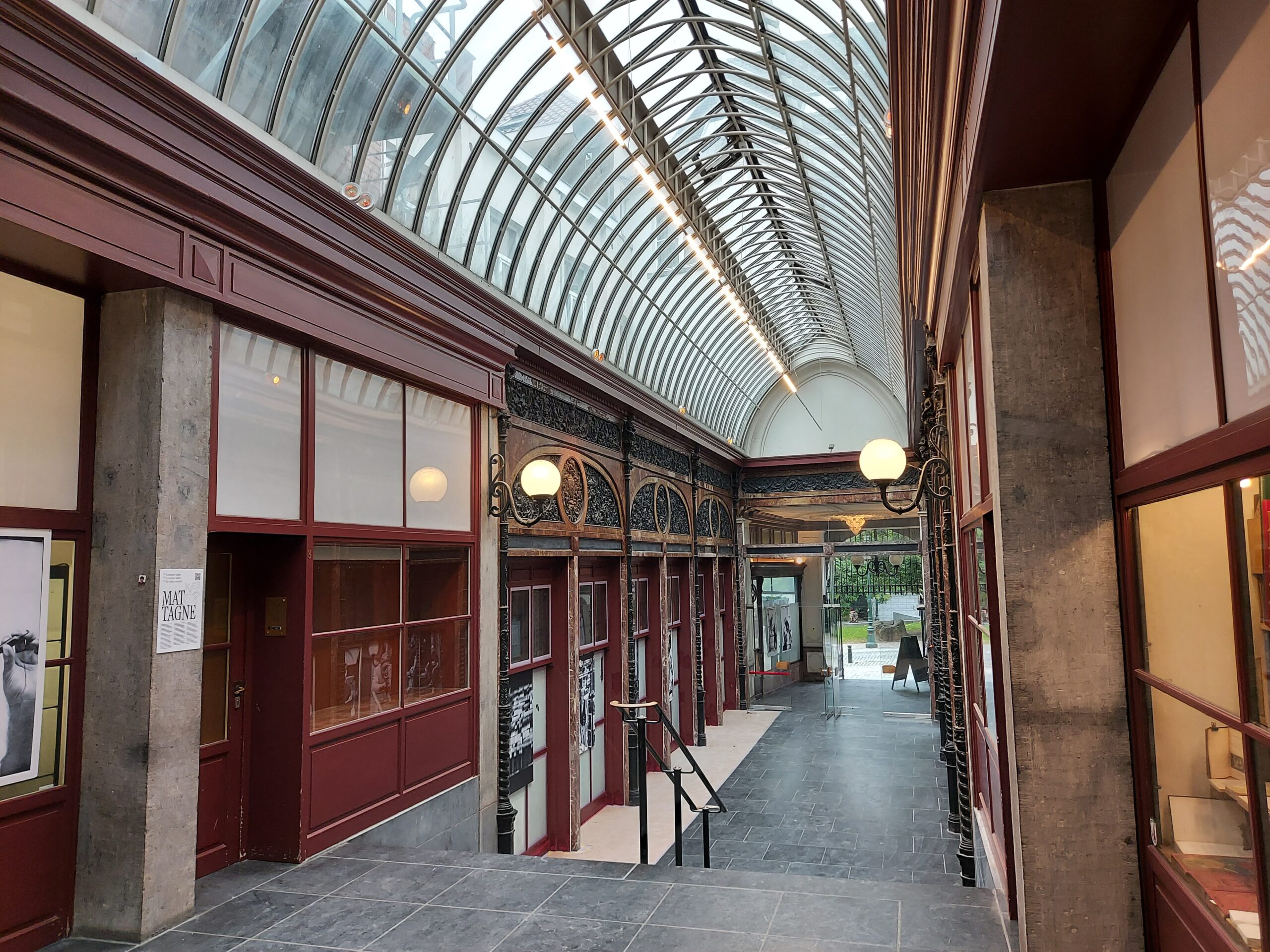Tucked between a row of houses only a few steps away from the Grand Place, Central Station and Mont des Arts, nestles the snaking Galerie Bortier.
Designed by architect Jean-Pierre Cluysenaar, the creator of the Royal Saint-Hubert Galleries, it is their slightly less grand little sister. With its intimate neo-Renaissance interior reminiscent of old Paris galleries, for over 175 years, Galerie Bortier has been a refuge for bookworms, collectors, and dreamers – making it one of few remaining havens for 'bouquinistes'– specialists in second-hand or antiquarian books. Still, many Brusselsers have never heard of it, let alone stepped inside.
Now, it faces a controversial transformation. After years of gradual decline, the Brussels city government is attempting to revitalise the sleepy gallery. In 2023, it gave the creator of the successful Brussels food halls Wolf and Fox, Thierry Goor, permission to transform Galerie Bortier into a gastronomic destination complete with a butcher, a fishmonger and a collaborative brasserie of local brewers.
The revamped gallery is set to reopen late in November, but the transformation has left the gallery’s most loyal patrons feeling disoriented at best and rejected at worst.
Bookends
The gallery was built to link Rue de la Madeleine and Rue Saint-Jean to the first covered food market in Brussels (now the La Madeleine concert hall) – a culinary link that may have inspired the new food hall. However, throughout its history, the gallery has been a hub for pioneering intellectual, cultural, and social movements. The father of philately – the study of stamps – Jean-Baptiste Moens established a shop in Galerie Bortier in 1853, where he bought and sold new and second-hand books and stamps. This sense of heritage has been maintained over the centuries.
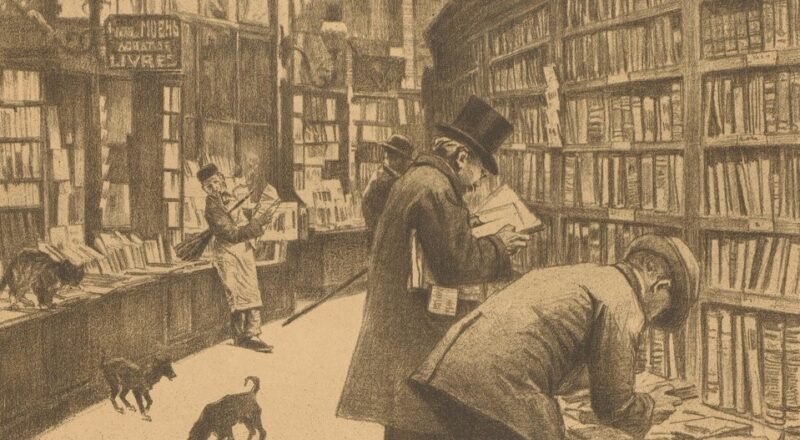
Galerie Bortier drawn by Francois Gailliard in 1919
“My dream was to be in the gallery ever since I was a child,” says Marian Lens from her home piled high with books and trinkets, her white hair cut into a short, androgynous style. A sociologist by training, and one of Brussels's most prominent and vocal LGBT figures, Lens opened Artemys in 1985. The shop was the city’s first and largest lesbian feminist bookshop, offering more than 10,000 titles on feminism, lesbianism and the history of women.
Growing up in a village outside of Brussels, Lens’s family would travel to the capital to buy clothes, books for school and sheet music for her piano lessons. “Our first stop was always Galerie Bortier, so for me, it was very famous,” she explains.
Lens first opened Artemys in Ixelles, and then 1987, Lens decided to see if there was availability in Galerie Bortier. “And there was! I took over an empty space that used to have a bookshop. It was like a miracle,” she recalls. “The gallery had always been all about books and changing the world. It was beautiful with all the art around and music. It was logical for me to try and be there.”
For decades, Lens sold books, art, photographs and music scores either by or about lesbians and feminists. Her most popular products by far were postcards, eventually building up a collection of over 50,000 postcards featuring work by female artists.
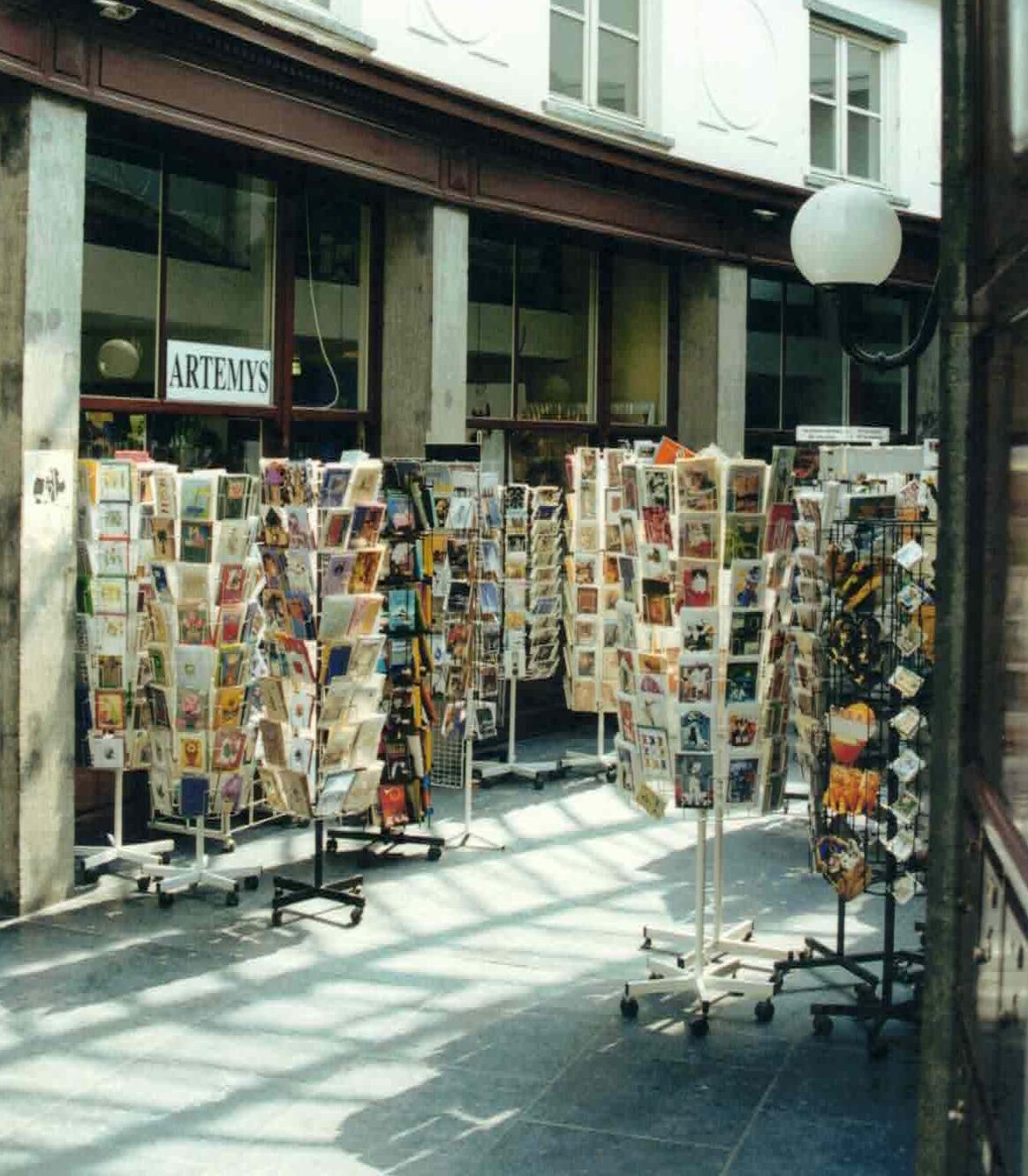
Artemys bookshop inside Galerie Bortier
Struggling shopkeepers
But life as a shopkeeper in Galerie Bortier was not smooth sailing. “It was always a struggle,” Lens says. Selling books was rarely lucrative, and shop owners would frequently bump heads with Brussels' Régie Foncière, the government housing association that manages the property on behalf of the City of Brussels, which owns it.
The shops decided to set up a non-profit organisation called ‘Galerie Bortier’ to promote the gallery and make it a vibrant cultural destination. But to no avail. When the transformation of the gallery was announced in 2023, the gallery’s booksellers launched a petition seeking “a genuine call for projects to be issued, in full legality and transparency, with the involvement of all those concerned on the ground.”
They said that “for years we have been put in an increasingly precarious situation: rents are too high, rates are arbitrary, leases have not been renewed, the premises have been abandoned for more than a decade.” More than 13,600 people signed the petition, but with no response from the city of Brussels, works went ahead.
Lens had already closed her beloved bookshop in 2002. During its time in the gallery, Artemys had not only been a place for Lens to “sell and share ideas,” it was also a safe space for members of the LGBTQ+ community. “For a while, I felt invincible,” Lens says. “People would say ‘You’re our sunshine.’”
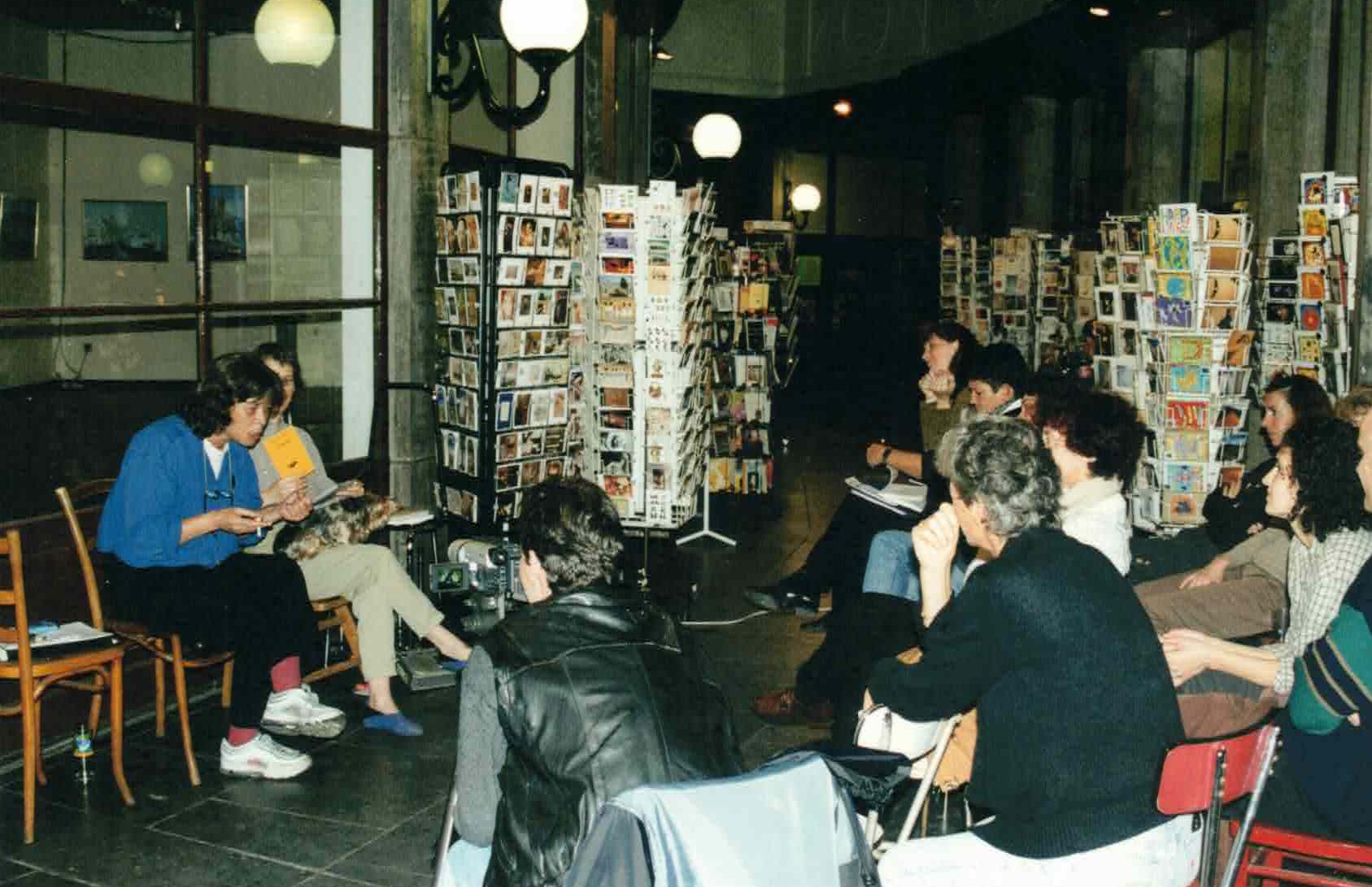
Artemys literary night, December 2000.
However, after nearly two decades of fighting to keep her business alive and support her community, when Amazon emerged as a competitor, Lens had no fight left in her. Suffering from burnout, struggling to keep her food down, she came to the difficult decision to close the shop. “I thought I would be running Artemys until my dying day,” she says.
Lens now runs L-Tour, organising tours and events around Brussels to highlight the history of the city's LGBTQ+ communities. While Galerie Bortier used to be an unmissable stop on her tours, she said she no longer plans to include it. To her, by changing the gallery’s main vocation from a cultural one to a food one, “they are breaking something that was so old. The gallery was made for books.”
A vision for the future?
Work in the gallery is nearly complete and the empty space will soon be filled by four new businesses: a fishmonger's, a butcher's, a brasserie and a wine shop. In a nod to the gallery’s food-related past, Goor has invited big names from Brussels' culinary scene.
With an emphasis on craftsmanship and quality, Dierendonck butcher, fromagerie Soeurs, a wine shop, and a florist will all set up shop, along with a new Filigranes bookstore. Seven Brussels craft breweries – La Senne, Brussels Beer Project, Surréaliste, Jungle, La Mule, En Stoemelings and L'Ermitage – will together form a joint brasserie.
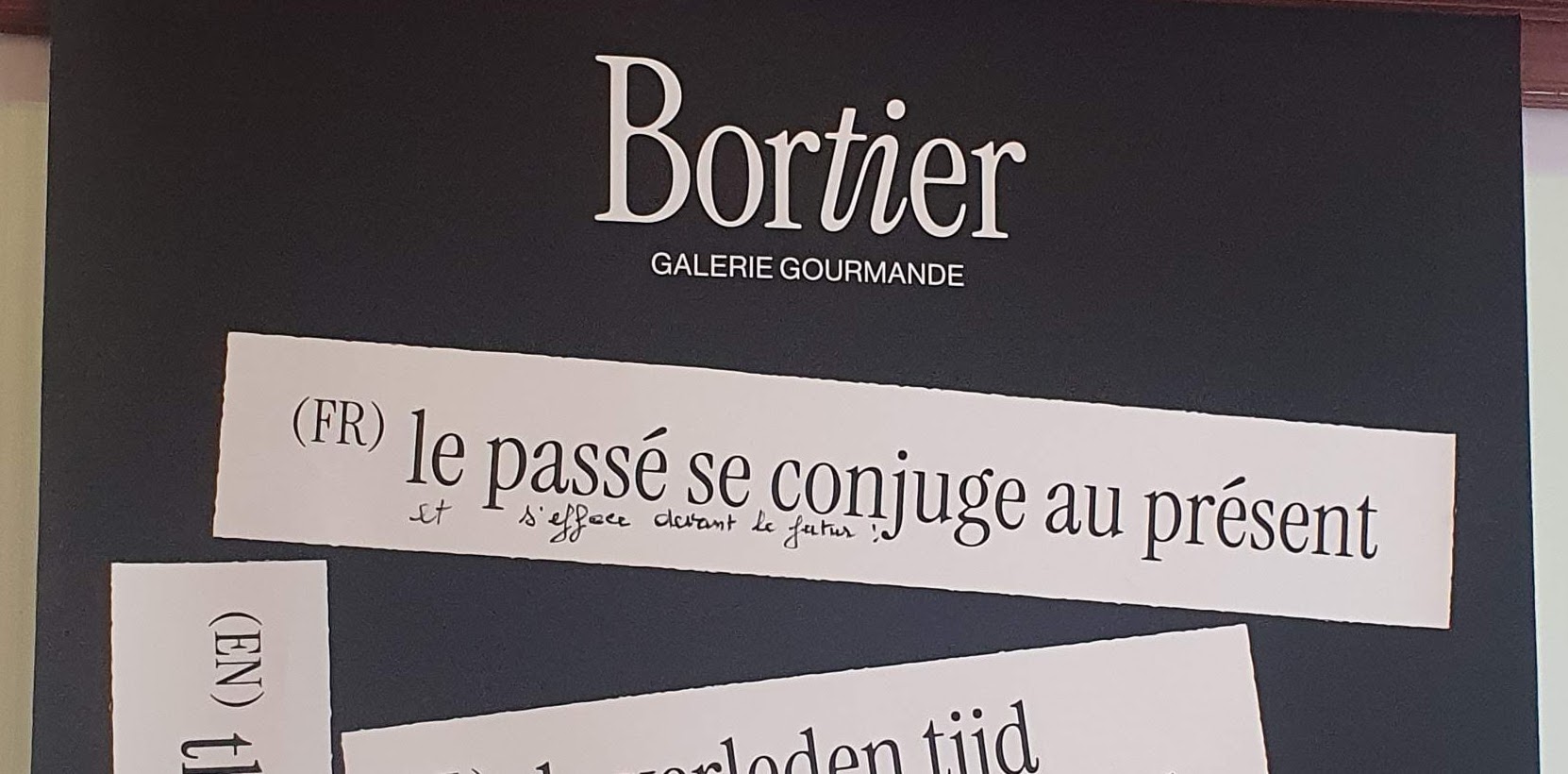
Protesting grafitti for the new food-orientated Galerie Bortier
While three of the original small businesses – Pierre Coumans's rare books store, Fanny Genicot's second-hand bookshop and Nicolas Van Cutsem's antique store – have been included in the project, several of the gallery's original shops have been forced to shut. One of the gallery's largest and most popular bookstores, La Bouquinerie, closed its doors in March 2024.
In his antique shop a few stalls down from where Artemys used to be, Van Cutsem, who opened his shop there eight years ago, says, "My general feeling is one of curiosity. It could fail, it could work." Scouring flea markets in the morning and selling his finds in the afternoon, Van Cutsem said his shop is now the only one of its kind in Brussels.
While he is hopeful about increased foot traffic in the gallery, the antiques dealer is not convinced that the new visitors will be drawn to his store. His main concern is that large groups of tourists might enter his shop without appreciating the value of his goods, touching and breaking things, and behaving disrespectfully. "My shop is a mess, yes, but an organised mess," Van Cutsem jokes. Still, he is confident that his loyal customers will keep coming, regardless of what happens. "At the end of the day, I want what's best for the gallery."
As renovations continue, promotional posters in the gallery showcase its rebranding: ‘The culture of taste, the taste of culture'. People have continued to voice their discontent. On a poster, under the printed sentence ‘Le passé se conjugue au present’ – or ‘the past is conjugated in the present,’ somebody has sardonically scribbled: ‘…et s'efface devant le futur’ – or ‘And it fades before the future.’

